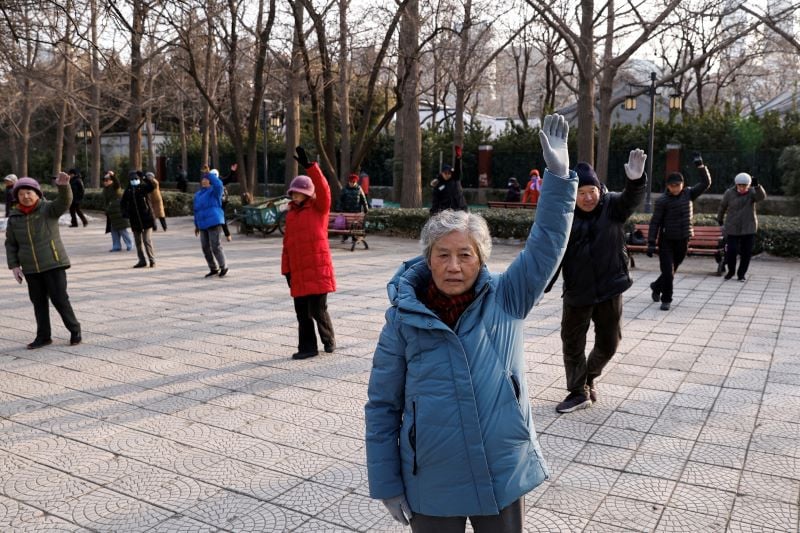
China is set to raise its retirement age from next year, addressing the challenges of a shrinking population and an aging workforce. Currently, China's retirement age is among the lowest in major global economies.
The new policy, passed by the Standing Committee of the National People’s Congress, was announced by state broadcaster CCTV on Friday. It will be phased in over 15 years, gradually raising the retirement age to 63 for men and 55 or 58 for women, depending on their jobs. Currently, men retire at 60, while women in blue-collar jobs retire at 50, and those in white-collar roles retire at 55.
Experts say the move is necessary to ease pressure on China’s pension system, which faces increasing strain as the population ages. “We have more people reaching retirement age, and the pension fund is under high pressure. It’s time to act,” said Xiujian Peng, a senior research fellow at Victoria University in Australia, specialising in China’s population and economy.
The policy will be implemented from January and will vary based on birthdates. For instance, a man born in January 1971 could retire at 61 years and 7 months in August 2032, while another born in May 1971 would retire at 61 years and 8 months in January 2033.
By the end of 2023, China’s population of over-60s reached nearly 300 million, a figure projected to hit 400 million by 2035. The Chinese Academy of Social Sciences warns that the public pension fund could be depleted by that year. This demographic challenge mirrors those faced by other countries, including the US, where Social Security is expected to struggle by 2033.
“This is a global issue, but in China, with its massive elderly population, the challenge is particularly acute,” said Yanzhong Huang, senior fellow for global health at the Council on Foreign Relations.
The growing burden is exacerbated by declining birth rates, with China’s population shrinking by 2 million in 2023, following a 2022 decline of 850,000. Fewer young workers mean the pension burden will fall on a smaller workforce.
The policy shift has sparked mixed reactions. One Beijing resident, Mr. Lu, who will now retire at 61 instead of 60, welcomed the change, noting that “in developed countries, the retirement age is higher.” However, 35-year-old Li Bin, who works in event planning, was less enthusiastic, saying, “It’s three years less of playtime.”











1722070138-0/BeFunky-collage]-(62)1722070138-0-270x192.webp)









COMMENTS
Comments are moderated and generally will be posted if they are on-topic and not abusive.
For more information, please see our Comments FAQ